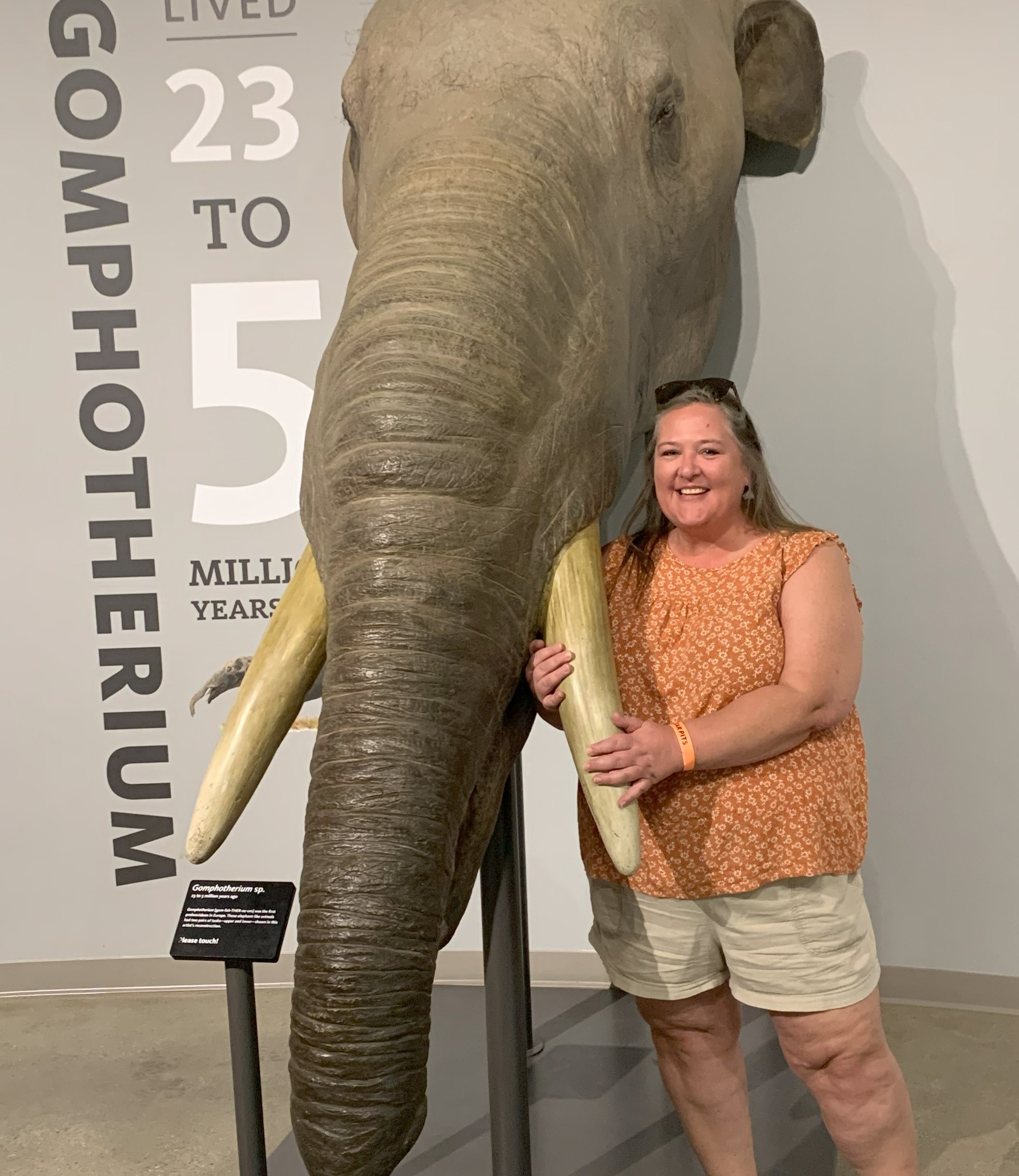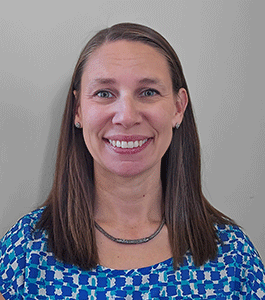Master of Education with a Major in Elementary Education
A master's degree in Elementary Education can be achieved by completing an innovative program designed to promote research-based practices that ensure that all students can and do learn. The program consists of a minimum of 30 hours of coursework.
This degree does not lead to initial certification in Elementary Education. For initial certification, please see the M.A.T. in Elementary Education.
For more information, please see the Academic Catalog. A program sheet, which provides a required coursework sequence, is available for download in the Courses tab below.
Our Master of Education (M. Ed.) degree program in Elementary Education is designed to prepare teachers who will be academically grounded instructional leaders. Program coursework and field experiences promote research-based practices that ensure that all students can and do learn. Graduates' theoretical and pedagogical knowledge will be deepened as they apply innovative, effective research-based practices in Elementary Education.
As a student in our Master's degree program, you'll learn strategies to help all students succeed by focusing on topics such as:
- Knowledge and understanding of the classroom learner
- Advanced methodologies for content area instruction
- Curriculum theory and development
- Social and/or philosophical foundations of education
- Research in Elementary Education
6 - 8 Semesters for completion (including Summer Semesters). Time for completion of this degree may vary by student, depending on individual progress and credits transferred, if applicable. For a personalized estimate of your time to completion, call your advisor.
This degree does not lead to initial certification in Elementary Education.
Career Opportunities
Link to Additional Career Information:
https://www.buzzfile.com/Major/Education
External Resource
Program Location
Online
Method of Delivery
Coursework is available 100% online.
Accreditation
The University of West Georgia is accredited by The Southern Association of Colleges and Schools Commission on Colleges (SACSCOC).
Credit and transfer
Total semester hours required: 30
A transfer credit evaluation will be completed by the UWG Transfer Team (transfer@westga.edu). Course application to a program is subject to review by the department.
Graduate students may be able to reduce their cost through prior learning, previous degrees earned at UWG, or transfer credits. We have created a tool to help students estimate their tuition costs.
This program is offered entirely online. Though a student may choose to sign-up for a face-to-face elective or core course, one can earn this degree completely online.
Save money
UWG is often ranked as one of the most affordable accredited university of its kind, regardless of the method of delivery chosen. In addition, online courses and programs can mean a huge cost-savings in many non-evident ways: No more high gas charges. No childcare needed. The flexibility can allow one to maintain a job while attending school. Regardless of state residency, out-of-state non-resident students are not charged non-resident tuition for online course credit hours.
Details
- Total tuition costs and fees may vary, depending on the instructional method of the courses in which the student chooses to enroll.
- The more courses a student takes in a single term, the more they will typically save in fees and total cost.
- Face-to-Face or partially online courses are charged at the general tuition rate and all mandatory campus fees, based on the student's residency (non-residents are charged at a higher rate).
- Fully or entirely online course tuition rates and fees my vary depending on the program. Students enrolled in exclusively online courses do not pay non-Resident rates.
- Together this means that GA residents pay about the same if they take all face-to-face or partially online courses as they do if they take only fully online courses exclusively; while non-residents save money by taking fully online courses.
- One word of caution: If a student takes a combination of face-to-face and online courses in a single term, they will pay both all mandatory campus fees and the higher eTuition rate.
- For the cost information, as well as payment deadlines, see the Student Accounts and Billing Services website
There are a variety of financial assistance options for students, including scholarships and work study programs. Visit the Office of Financial Aid's website for more information.
Coursework
The program consists of a minimum of 30 hours of coursework, offered 100% online. Students exit the program with a Master of Education (M.Ed.) degree in Elementary Education.
Downloads
General
This course is a critical study of the design and implementation of curricula in the field of education.
A seminar designed to synthesize the theories, concepts, NBPTS propositions, and instructional strategies that have been learned during the M.Ed. program. A 'capstone' field project with students in a PK-5 setting will be a requirement for this course. This seminar is also designed to enhance skills in critical thinking, comprehension of research, and decision-making as an effective practitioner. A completion of the Master's degree portfolio will also be accomplished in this course. This course should be taken within the last two semesters of graduation.
Concepts and material which are appropriate for mathematics education of Pre K - Grade 5 children will be investigated. In addition, research on the use of process education in these areas will be considered.
Students will examine the research and literature base forming the foundation behind the content, methodology, skills, and materials used to teach science to children in grades P-5.
This course is designed to assist the teacher in integrating the teaching of language arts including: reading, writing, oral language, listening, as well as viewing and visual representation.
Graduate students will critique current methodology, trends, and issues; evaluate strategies for implementing curricular and instructional change; and enrich their decision-making and leadership skills to enhance the elementary (P-5) social studies curriculum.
An examination of the child from the parental viewpoint. Strong emphasis will be given to changing family structure, family communication, responsibilities of parenting as they relate to teacher education and child care givers. Parenting in high-risk families and children with exceptionalities will be addressed.
This course is designed to aid in the understanding of the effects of home, community and society on the life of young children.
Family/Community Involvement for School Improvement is designed to acquaint teachers of early childhood and elementary grade children with techniques for working with and involving families and communities. In this course, four areas of parent and community involvement will be emphasized: home-school communication, parent education, volunteerism, and public/community relations.
This course is designed to examine issues relating to cultural pluralism and global perspectives in order to provide a richer understanding and appreciation of the social forces that influence the education of diverse student populations. Particular attention is given to culturally responsive teaching, ethical behaviors, and personal responsibility to affect change. Students will examine, evaluate, and develop curricular materials that include techniques to differentiate for diverse populations of P-12 students.
Students will become successful consumers of research through the introduction of principles of qualitative, quantitative, and mixed methods designs. Within these categories of research, students will learn the foundations of action research and single subject research.
This course is designed to increase the school leader's knowledge and understanding of assessment and its role in improving student achievement. Students will examine the knowledge and skill base that supports the effective use of assessment within classrooms and schools. The nature and purpose of assessment, its use for improving instruction and the design of high-quality teacher-developed classroom assessments will be emphasized.

Rebecca Bowman, Ed.D.
Clinical Assistant Professor
Stacey Britton, Ph.D.
Associate Professor & Assistant Department Chair of ESCER
Cliff Chestnutt, Ph.D.
Associate Professor
Andrea Crenshaw, Ed.D.
Associate Professor
Jennifer Edelman, Ph.D.
Associate Professor
Rebecca Gault, Ph.D.
Associate Professor
Tiffany Jacobs, Ph.D.
Assistant Professor

Kayla Myers, PhD
Assistant Professor
Natasha Ramsay-Jordan, Ed.D.
Associate Professor & Assistant Chair of Elementary Programs
Janet Strickland, Ph.D.
Associate ProfessorGuidelines for Admittance
- All graduate applicants must complete the online Graduate Application. A current application fee of $55 is required.
- Applicants should also review the Graduate Studies Website for individual program specific requirements and tasks that must be completed prior to admission. See Graduate Studies Application Process.
- International applicants are subject to additional requirements and application deadlines. See Procedures for International Students.
- Official transcripts from all post-secondary schools attended are required and should be sent directly to the UWG Graduate Admissions Office.
Program Specific Admittance Guidelines
Applicants must have an undergraduate degree in Early Childhood or Elementary Education and be eligible for an Elementary Education clear and renewable certificate or possess a clear and renewable professional certificate in Elementary Education with a minimum overall 2.7 GPA.
Application Deadlines
Specific Graduate Admissions Deadlines are available via the Graduate School
* Application, app fee, and document deadline
See The Scoop for more specific deadlines.
Admission Process Checklist
The Graduate Studies Application Process checklist is available here
One exception: If you will not ever be traveling to a UWG campus or site, you may apply for an Immunization Exemption. Contact the Immunization Clerk with your request.
Contact
Graduate Admissions:
Email: graduate@westga.edu
Phone: 678-839-1394
College of Education:
The The Department of Early Childhood through Secondary Education and Reading website includes projected course offerings, program sheets, and other vital information.
Program Questions:
Dr. Stacey Britton
Email: sbritton@westga.edu
Phone: 678-839-6066
Specific dates for Admissions (Undergraduate Only), Financial Aid, Fee Payment, Registration, Start/End of Term Dates, Final Exams, etc. are available in THE SCOOP.
Specific Graduate Admissions Deadlines are available via the Graduate School
- Master's candidates are committed to students and their learning.
- Master's candidates know the subjects they teach and how to teach those subjects to students.
- Master's candidates are responsible for managing and monitoring student learning.
- Master's candidates think systematically about their practice and learn from experience.
- Master's candidates are members of learning communities.
